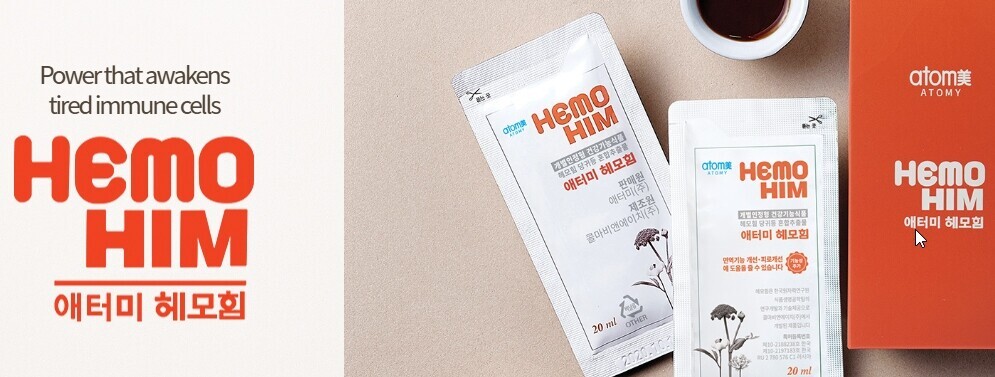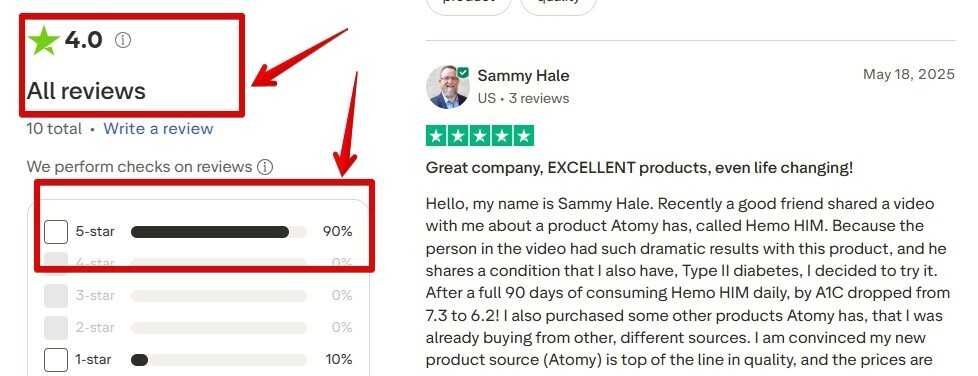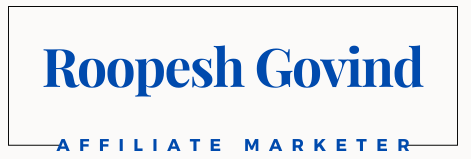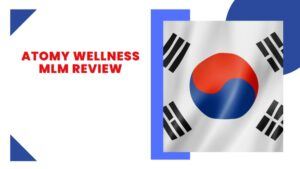If you’ve spent any time in the online wellness or home business world, you’ve likely seen or heard something about Atomy Wellness.
Thanks to the boom in Korean beauty and wellness trends, Atomy has exploded onto the scene, grabbing headlines for its rapid global growth and big promises of luxury-level products at affordable prices.
But, behind the eye-catching promotions, the question I regularly get—sometimes every single week—is this: is Atomy a real business opportunity, or just another product-based pyramid scheme wrapped in sleek Korean branding?
Atomy is all over—from YouTube hauls and Instagram stories to health forums and online chats. It’s often plugged as a golden side hustle for parents at home, job seekers, and anyone wanting a flexible way to pick up extra cash.
The company began in South Korea back in 2009, but has since stretched its reach into over 20 countries, racking up millions of registered members.
That’s an impressive jump for a business that started with just a handful of health and skincare items.
The core question remains simple: is Atomy Wellness truly a unique income adventure, or are you more likely to be left with a pile of supplements and toothpaste you didn’t even want?
Whether you’re considering enrolling, seeking alternatives, or just wanting the whole scoop on this trending Korean wellness MLM, this review checks out what Atomy truly offers, how their unique system operates, and what users really think.
Who Should Read This Review?
This review is super helpful for anyone who’s:
- A stay-at-home parent is thinking about making extra income
- Searching for work-from-home or side hustle options
- Exploring Atomy’s business opportunity out of curiosity
- Into K-beauty or Korean wellness and skincare trends
- Suspicious about MLMs and eager for the unfiltered facts
If you want the real story about Atomy—both what makes it shine and the things that should make you think twice—you’re in the right place. Let’s get into all sides of the story.
Free Access to the STARTER MEMBERSHIP which includes:
- 8-lesson core niche training
- WA help/community access (2.5 + million members)
- 7 days of coaching/mentoring from me
- And more…

Atomy Wellness: The Company Basics
Atomy Wellness started in 2009 in South Korea, the brainchild of Han-Gill Park. They pitch themselves as offering “masstige” products—that’s a mashup of ‘mass’ and ‘prestige’—so you get the feel, science, and ingredients of high-end brands, without the sticker shock.

That means you’ll find skincare, supplements, and home goods that feel luxe, at prices most people can afford.
Their expansion has been massive, now with a strong presence in the USA, Canada, Singapore, Malaysia, Australia, and plenty more countries. Atomy says it has tens of millions of members worldwide.
Atomy operates on a multilevel marketing (MLM) framework.
Members (sometimes called distributors or just members) earn commissions both from their own product sales and, more importantly, from the sales of anyone they bring into their ‘binary’ downline. Instead of sticking entirely to retail, Atomy’s main focus is recruiting others to its two-branched team system.
The whole arrangement uses Point Value (PV)—a system where each product purchase earns credits that unlock higher ranks and commissions.
Key facts for quick reference:
- Founded: 2009 in South Korea
- Founder: Han-Gill Park
- Top Products: Hemohim supplement, The Fame skincare set, Propolis toothpaste
- Business Style: Product-based MLM, binary team structure, free sign-up, but annual purchases needed to stay active
- Main Selling Point: “Massive prestige” (masstige) at everyday prices, and scientific research from the KAERI partnership
Atomy Product Line: What They Actually Sell
Checking out Atomy’s catalog, you’ll notice it’s surprisingly broad.
Their lineup isn’t only supplements and skincare—they also have toothpaste, shampoo, dish soap, kitchen goods, and even snacks and various teas.
But some products definitely stand out as crowd favorites or flagships:

- Hemohim: Atomy’s star supplement, Hemohim, has roots in a collaboration with the Korea Atomic Energy Research Institute and Kolmar BNH. It promises to boost immunity and energy, using angelica, cnidium, and paeonia root extracts. While enthusiastic users claim big benefits, the medical community is split—large-scale, peer-reviewed research for the general public is limited.
- The Fame Skincare Set: This all-in-one skincare suite covers everything from cleanser to eye cream. People love the feel and gentleness, though some say you can find very similar products in mainstream K-beauty, sometimes at a lower cost.
- Propolis Toothpaste: It’s an inexpensive toothpaste packed with propolis extract, promoted for mouth health. Reviews here are mostly positive, but a handful mention an intense herbal taste.
- Home Care Items: From shampoos to dish and fabric cleaning products, these have a following thanks to their skin-friendly and hypoallergenic formulas.
What makes Atomy’s products interesting on paper:
- KAERI Science Angle: With items like Hemohim, the brand leverages its link with South Korea’s atomic research agency, emphasizing a science-based persona.
- Kolmar Manufacturing: With Kolmar Korea as the manufacturer, Atomy can tout premium production standards common among Asia’s top skincare exporters.
- Price Point: They often undercut department and boutique labels. Hemohim usually goes for $90–$100 for a 30-day supply, while skincare sets run from $30–$60.
- Ingredient Transparency: Labels tend to steer clear of harsh irritants, though not all items are “all-natural” or organic.
Effectiveness?
Reactions online and from customers are all over the map. Hemohim gets rave reviews in Facebook groups, but neutral or critical feedback elsewhere for its bold claims.
Without widespread, long-term studies, medical professionals advise caution. Most endorsements come from within the Atomy ecosystem itself—something to keep in mind when weighing reviews.
Outside of the supplement world, Atomy’s skincare and home care lines generally get good reviews, especially for sensitive skin.
People like the elegant packaging and the value for the price. On the downside, there’s a fair number of mentions about lackluster results, some allergic reactions, or complaints about members pushing people to buy more than they need for PV purposes.
 ,
,
Some commonly shared user experiences:
- Skincare products work well for people with sensitive skin
- Excellent value, considering quality and quantity
- Packaging feels upscale, and unboxing is nice
- Some supplements and products fall short of hyped claims
- Pressure exists to buy extra products just to earn bigger commissions through PV
Don’t forget: since most Atomy products are purchased via members and their networked shops, many glowing reviews come from people hoping to earn commissions.
That’s not unique to Atomy, but it’s a good reason to seek out reviews from third-party platforms before making any decisions.
Recommendation Reading: Ambit Energy Review – Legit Business Or Another MLM Scam?
How Atomy’s MLM System Works: The Breakdown
One of Atomy’s big appeals is “free to join”—there’s no onboarding fee, and no automatic monthly quota or subscription you’re forced to keep up with.
That already puts it ahead of several US-based MLM competitors. But the compensation structure is more complex than it first appears.
Here’s what matters for newcomers:
- No Join Cost: Sign up as a member for free. You don’t need an initial starter kit. However, at least one purchase per year is required to stay eligible for commissions.
- Binary Structure: Your team splits into two legs—left and right. Your progress depends on growing both sides by bringing in new members and encouraging the team to do the same.
- PV System: Every product carries a Point Value. As you and your downline rack up PV, you become eligible for commission payouts, but only if both legs meet certain PV minimums—this encourages constant balance and growth.
- Advancement: Ranks like Sales Rep, Agent, and up to Royal and Imperial Master all have their own PV and recruitment standards. Each advancement gets stricter, and perks jump often only at higher levels.
- Bonuses:
- Team commissions: Based on collected PV in both legs, not just your direct sales.
- “Mastership” and one-off bonuses: Achieve high status, and you could win cash, trips, cars, or major sum payouts for reaching top-tier rankings.
- No retail markup: Everyone pays the same “distributor” price. Earnings rely on how big your downline gets, rather than steep sales markups.
- No Autoship, Technically: You’re not required to subscribe each month, but regular buying is usually expected if you want to remain commission eligible.
For example, to hit commission qualification, you might need 300,000 PV on each leg (from total sales and team activity).
This drives recruiting and consistent personal purchasing. If your left or right team drops behind, your income stalls until you fill it in—hence the push for balance and growth, not just solo selling.
This is where Atomy falls squarely in MLM territory—success largely depends on ongoing recruiting, team building, and getting everyone to buy regularly.
You can make some money selling to outsiders, but the plan delivers most results through your network’s activity. For those not keen to constantly network or sell to friends, it can be a big ask.
Real User Experiences: The Good and The Bad
With all the noise online, it’s helpful to break down what people genuinely appreciate—and what frustrates members about Atomy.
✅ Pros
- No cost to sign up, and no mandatory monthly quotas feel liberating compared to other MLMs
- High-quality, Korean-made products tap into a massive global wellness trend
- An international community, complete with very active social media groups, can feel supportive and motivating
- Buying only as needed, rather than getting locked in to monthly purchases, makes it more userfriendly for retail shoppers or casual participants
❌ Cons
- Most people never make a real profit—earnings are almost exclusively reliant on building and maintaining a big, active downline
- Pressure to buy products for “PV” can lead to overspending, eventually stacking up unwanted goods
- Recruiting and sales pitches can turn aggressive; some member communities have a reputation for being cultish or hyperactive in chasing new recruits
- Health claim controversies: especially around Hemohim, some regulations warn that marketing strays beyond what’s medically supported
⚠️ Red Flags & Community Criticism
Atomy’s structure has stirred up plenty of drama in online communities.
Here are some common concerns and red flags you should consider:
- Sales Focused on Members: The majority of product movement happens within the system itself—members buying for their own use or trying to build up PV. Critics argue this is a risk for the pyramid model trap.
- “Cult of Hype” Culture: Forums on sites like Reddit and Quora report lots of over-the-top team events and motivational videos. There’s heavy pressure to keep buying and stay “positive” or risk losing status with the group.
- No Detailed Income Disclosure: Unlike some competitors, Atomy does not publicly share breakdowns of average earnings per member. Success stories are common, but hard statistics are rare, which makes it tough to get a realistic picture.
- Overblown Marketing: Atomy’s promotional material sometimes makes outlandish claims about becoming a “master” or hitting big paydays, when in reality, only a tiny percentage experience true success.
- Lack of Independent Research: Product claims often reference science and research, yet few independent lab reports or third-party clinical results are published for the average buyer to check.
While these issues exist in many MLMs, Atomy’s added edge is its reputation for Korean quality and an apparently risk-free sign-up. Still, all the same recruitment and retention risks linger beneath the surface, so it’s smart to stay sharp and read widely before leaping in.
Atomy: Pyramid Scheme or Legit MLM?
This is the real heart of the matter.
What’s the legal difference between a “legit” MLM and a pyramid scheme?
Simple: A legit MLM gets the bulk of its money from actual sales to real customers, and rewards are offered for volume, not headcount. In pyramid schemes, people profit primarily from bringing in new members, and sales outside the network barely exist—products become an afterthought.
In Atomy’s case, South Korea’s Fair Trade Commission and other national agencies confirm the company ticks boxes for MLM legality (source). Products exist and can be bought by anyone, even if you never recruit.
But, it’s not all clear sailing:
- Most product buying happens between members, not from outside retail customers
- Progression up the ranks—and paychecks—depend on successfully recruiting a team to keep both legs of your binary structure thriving
- Making consistent, significant income from just product sales is rare—most members eventually drop out or hover at breakeven
- Very few members reach the promised land of high-tier bonuses
So, is Atomy a pyramid scheme?
On paper and in the eyes of the law, no.
Their business model technically centers on product sales. But in practice, the business skews strongly toward internal recruiting and rewards those who build the biggest networks.
As a legal MLM, it’s allowable, but for everyday members, it walks a very fine line, especially on promises versus the reality of earnings.
? Is Atomy Right For You?
If you’re sizing up whether to join, here are some quick guidelines for who will really thrive—and who should think twice:
Best For:
- Fans of Korean beauty and wellness who would naturally buy the products for themselves
- People with large social networks who enjoy sharing business or product opportunities and don’t mind a bit of hustle
- Those seeking retail discounts on Atomy’s broad catalog, with a shot at low-key side earnings
- Bilingual individuals who want to team up across markets and community groups
Not Ideal For:
- Anyone hoping for passive, ongoing income without constant recruiting efforts
- Anyone uncomfortable promoting to friends and family or discussing wellness products
- People on strict budgets who don’t want to sink funds into products just to chase team PV or rank up
- Individuals who want to avoid high-pressure group environments
It’s worth stressing: as a casual shopper, Atomy is low-risk and doesn’t require heavy commitment. Plenty of people enjoy being retail customers alone. If you’re thinking about it as a money-making path, though, step in with your eyes open. Earnings take continuous recruiting, buying, team management, and lots of time in networking circles—much more than just selling a few bottles here or there.
Free Access to the STARTER MEMBERSHIP which includes:
- 8-lesson core niche training
- WA help/community access (2.5 + million members)
- 7 days of coaching/mentoring from me
- And more…

Atomy vs Affiliate Marketing – Which Is Better?
If your main goal is long-term extra income, or the dream of working online at your pace, I recommend strongly considering affiliate marketing instead.
If you want to skip the constant group meetings and pushy sales calls, affiliate marketing is worth a look. You can promote products you love, build an audience, and earn without recruiting or chasing anyone down.
For beginners, I suggest starting with Wealthy Affiliate, a platform that lays out everything you need, step by step—no credit card required and no wild upsells.
It does take effort (nothing good comes with zero work!), but long-term, it’s much more scalable and frees you from the stress of growing a team. If you want to check it out yourself, here’s the free starter account link.
My Verdict: Should You Join Atomy?
Summing it up after deep research and a mountain of member feedback: Atomy delivers decent Korean beauty and wellness products at accessible prices.
They have a solid reputation for following safe manufacturing guidelines and ingredient transparency, and if you just want to shop, there’s little risk.
Yet, as a business?
The MLM path is rocky for the average member. Without daily recruiting and constant dedication, income is rare, and you often end up spending more than you earn.
Atomy isn’t scamming anyone, but it simply doesn’t live up to those “riches and freedom” dreams for most people.
You’ll see more success and have greater agency by building your own affiliate marketing site or business—minus the pressure and with real opportunities for passive income over time.
If you crave a truly open-ended online income path but hate recruiting, try Wealthy Affiliate—it’s my go-to, especially for those starting from scratch.
? Share Your Experience (or Ask Questions!)
Are you or anyone you know an Atomy member? Drop your story or your questions below—let’s get a real conversation started.
For those wanting detailed, legit online earning guides, claim your spot in my affiliate marketing training.

